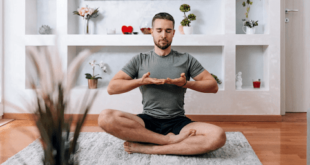Making your home greener and healthier does not need to be overwhelming or difficult. Changing just a few things can improve your home, making it safer. Some things might be easy while others may require an investment. But putting these things into place can make your home a safe haven, no matter who lives with you and how long you choose to live there.
Install a Home Elevator
Home elevators make houses safer for people with mobility issues. They also make it easier to get around, even if you are getting older and are finding the stairs a challenge. They reduce the chances of an accident happening on the stairs. If you are thinking about putting in a home elevator, you can research Stiltz home elevator costs to see how it might fit in your budget.
Ditch Your Smoking Habit
If you smoke, you may be exposing those in your home to secondhand smoke, which can lead to a variety of issues. You may also be damaging the home’s interior, as smoke can stain walls and ceilings. Plus, smoking is expensive. There are so many areas of your health you can improve and quitting is certainly one of them. If you avoid smoking, you can save quite a bit of money. You can speak to a health care professional about getting help with quitting this habit.
Test Your Home
Older homes may have toxins in the paint or other materials and ignoring them could have serious consequences. Radon gas can cause cancer, while lead in paint can be harmful to young children. If old paint is eroding or chipping, it’s more likely children may be affected. Lead is often found in older homes, as it was banned in the late 1970s. Contact the local health department about getting testing for these toxins. They can take samples from different parts of the home to see if you may have lead that needs to be removed.
Avoid Using Pesticides
Pesticides are used to poison pests, like insects and rodents. However, being exposed to them too much can lead to many issues. Plus, using pesticides can be expensive and is not the most eco-friendly choice. Instead, focus more on preventing pests in the first place. Keep your home free of food residue by cleaning the kitchen, washing your dishes, and vacuuming the floors regularly. Keep containers and packages of food in bins so pests can’t chew through the packaging. Seal any entry points into your house.
You can also avoid using pesticides or herbicides on the lawn. Try not to worry too much about weeds. When you allow more native plants to be mixed into the grass, you’ll have a more natural look. Spend some time pulling weeds, which can also help you burn some calories. Be careful of what you bring in your home too. Many conventionally-grown fruits and vegetables have been sprayed with pesticides, so make sure you wash them carefully before eating them. Consider growing some of your own produce if you have the space and time to do so.
 eTopical Precious Finds
eTopical Precious Finds


